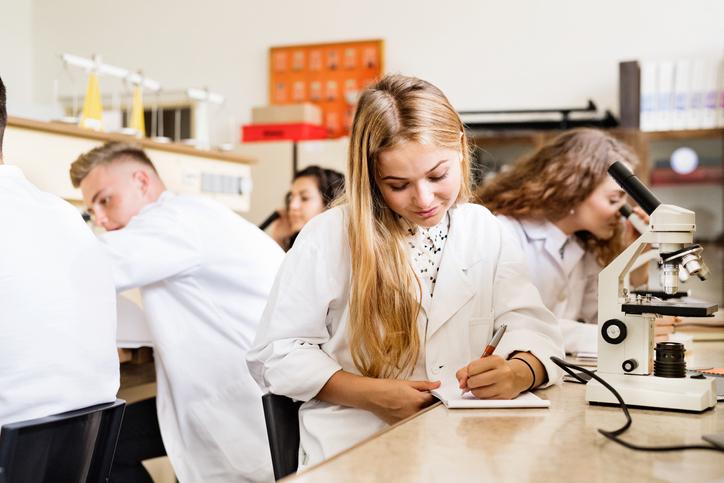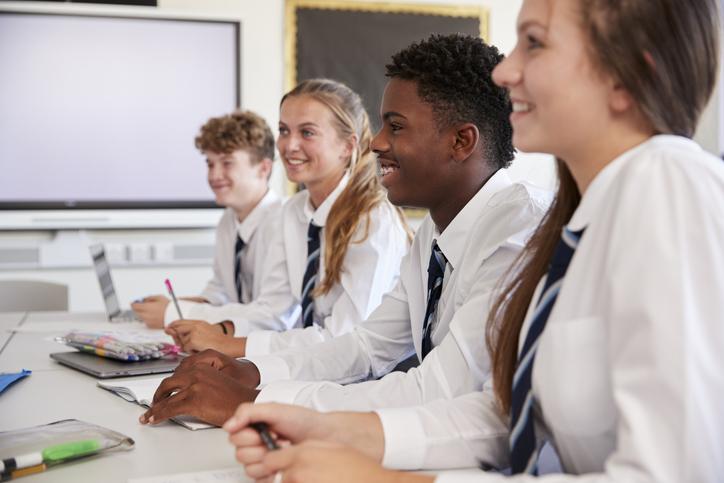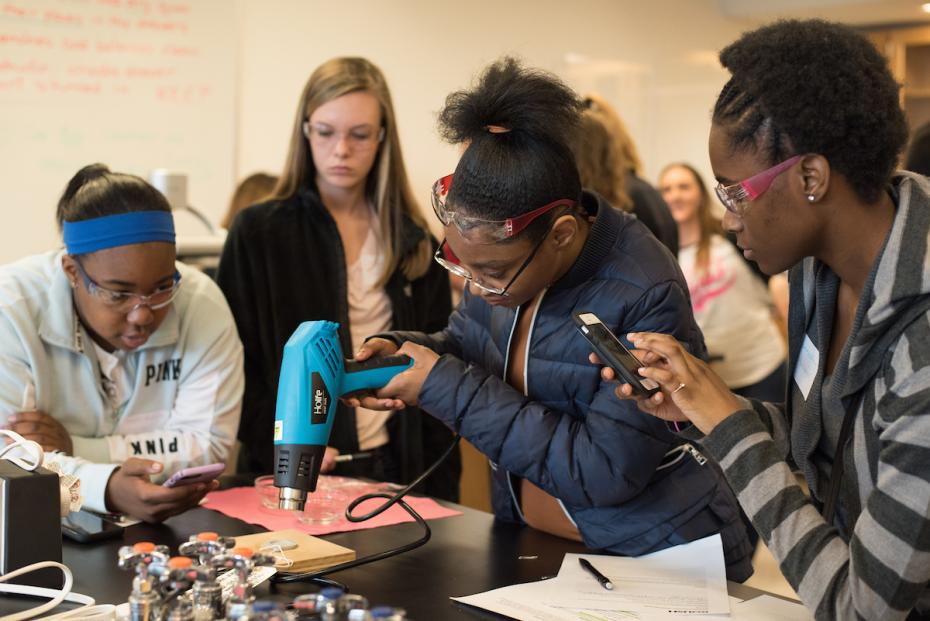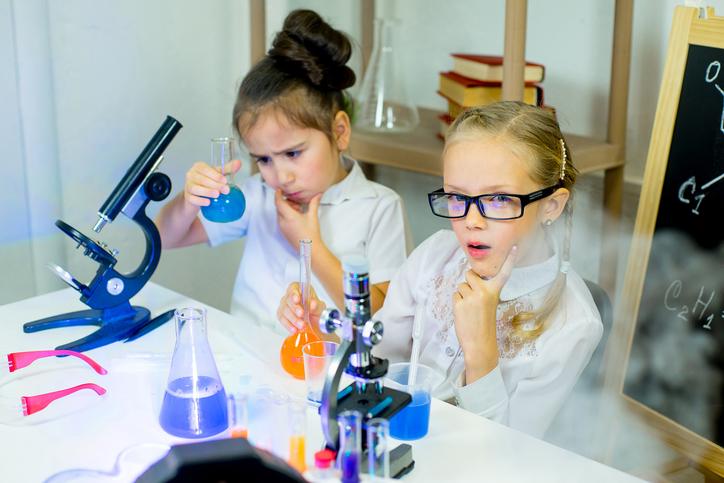The Covid-19 pandemic was the predominant news story around the world from 2020 to 2023. Global health was thrust into the front line as a Big Topic of which all populations needed to gain understanding. One population that needs to know more about global health is the next generation of scientists, researchers, healthcare workers and advocates. In essence, these are today’s school, college and sixth-form students.
UK universities offer “taster” days or training courses around medicine to expose young people to what is involved in the life of a doctor. These days can involve pathology and dissection, for example, which (anecdotally) can give students call to revise their thinking. This is, of course, important – it is important to learn from a taster day whether the topic at hand might be a realistic future career. If the student takes part and then thinks “not for me”, that is still useful knowledge gained.
- How can universities get more school pupils enthusiastic about science?
- Raising aspirations: lessons in running a young scholars programme
- So you want to reach out? Lessons from a ‘science for all’ programme
Despite this, there is very little in the way of university education that is targeted at pre-university-age students to give them that “taster” about future career options and thus future study. LifeLab is a novel educational programme and staffed facility that has been run since 2008 at the University of Southampton (UoS) in collaboration with University Hospital Southampton. LifeLab teaches young people how their actions affect not only their own health but also that of their future children. A four-component programme provides teacher professional development, a curriculum-linked module of work with immersive, hands-on activities to engage with the science behind the health messages, peer-education opportunities and a developing talent (DT) programme to widen the experience and aspirations of secondary school children.
How we bring healthcare research to school-age students
In August 2023, LifeLab and UoS colleagues delivered a one-day training session around global health. This pilot was free to attend, aimed at 16 to 17-year-olds, and advertising was sent to our network of local schools and colleges. All 20 places were taken up within a few days of registration opening, and 15 students attended on the day.
The course included research presentations and interactive sessions. We presented how 2.3 billion people faced some level of food insecurity in 2021. Our presentation provided a case study of our research in Mion, a rural district in northern Ghana, which measures the prevalence of food insecurity experienced there and what impact climate change has had in recent years.
We discussed healthcare quality, with particular emphasis on health facility birthing care use in Ghana. The session focused on how routine health data can be integrated with information from other disciplines, such as geospatial from the WorldPop group. The teenagers were keen to know the motivation behind the research and also asked about data-collection methods, field visits and the impact of the research. It was interesting to hear them consider whether the research results are made available to improve maternal health in Ghana and how our teaching might reinforce the importance of research impact.
Other topics covered during the day included vaccine hesitancy and anti-vaccine activism during the Covid-19 pandemic, as well as refugee health. This latter topic included a research presentation around mental health of refugees from Ukraine and Burkina Faso. Additionally, an Afghanistan scientist, who fled the Taliban and ended up a refugee in Kazakhstan, joined virtually to give the students a personal insight about life in Afghanistan, the upheaval his family faced when leaving their country and his ambitions for a career in public health to help the Afghan people.
The interactive activities included the simulation of a gastrointestinal infectious disease outbreak, where some students were “cases”; others were public health staff trying to find the cases; and one student was on data-entry duty. There was a predicted amount of chaos with finding cases (who we sent into different rooms within LifeLab, and some were later “reinfected” or became new cases in a second wave) and delays with data entry as we sought to show how difficult and confusing outbreak management can be. Another interactive activity covered students dividing into small groups and investigating malnutrition in a rural Ghanaian community. There was also a global-health pub quiz.
The introduction covered the careers of the course tutors and we ended with general careers tips.
Takeaways from running a pilot ‘taster’ day in global health research
Students were asked to complete the short form (which they accessed via a short weblink or by QR code and took one to two minutes to complete) and to be critical where appropriate. Questions were mostly Likert-scale format, with one being the lowest and five being the highest score.
A total of 11 students provided feedback. They rated the educational value of the day, which received an average score of 4.55 (range 3-5), how much they enjoyed the course (average 4.36, range 3-5) and whether they were more or less enthusiastic about a career in global health having attended the training (average 3.91, range 3-5). The attendees had all chosen to be there, so had an initial curiosity about global health – thus their perceived enjoyment and encouragement from the day was pleasing to see and suggested the sessions were interesting overall and pitched at the right level.
We did ask if there were any topics that should not be run again in their current format (with tick-box options alongside each session), and six students mentioned the outbreak activity. One student, in free-text comments, highlighted how they “didn’t see the point of it”. This is useful feedback and, on reflection, we could lengthen that session and set the students questions to answer around the data they had collected (for example, odds ratios and significance testing to identify risk factors).
Among the most popular sessions were the pub quiz and the maternal health talk. This was delivered by Winfred Dotse-Gborgbortsi, a Ghanaian researcher at the university. Although this was not clarified within the feedback (and a question of “why do you think this?” might be useful next time), it’s plausible the attendees enjoyed hearing his personal lived experience and the voice of a male advocate in improving women’s health and gender equality.
Overall, it appears the students enjoyed and appreciated the day. The areas of criticism are fair and appropriate and give us cause for reflection. Our view is that we would like to offer this course again, potentially over two days and to include further skills sessions (such as developing presentation skills). The course may also be pitched at younger students, such as year 8 or year 9, who are looking to choose their GCSE options. Ultimately, we need to consider how best to inspire the next generation of STEM students.
Michael Head is a senior research fellow in global health in the Faculty of Medicine and advocacy manager; Jessica Boxall is a CORE eCRF data analyst at the Clinical Informatics Research Unit; Winfred Dotse-Gborgbortsi is research fellow in spatial epidemiology at WorldPop, School of Geography and Environmental Science; and Kath Woods-Townsend is associate professor in the School of Healthcare Enterprise and Innovation and programme manager at LifeLab. All are at the University of Southampton.
If you found this interesting and want advice and insight from academics and university staff delivered direct to your inbox each week, sign up for the Campus newsletter.




comment